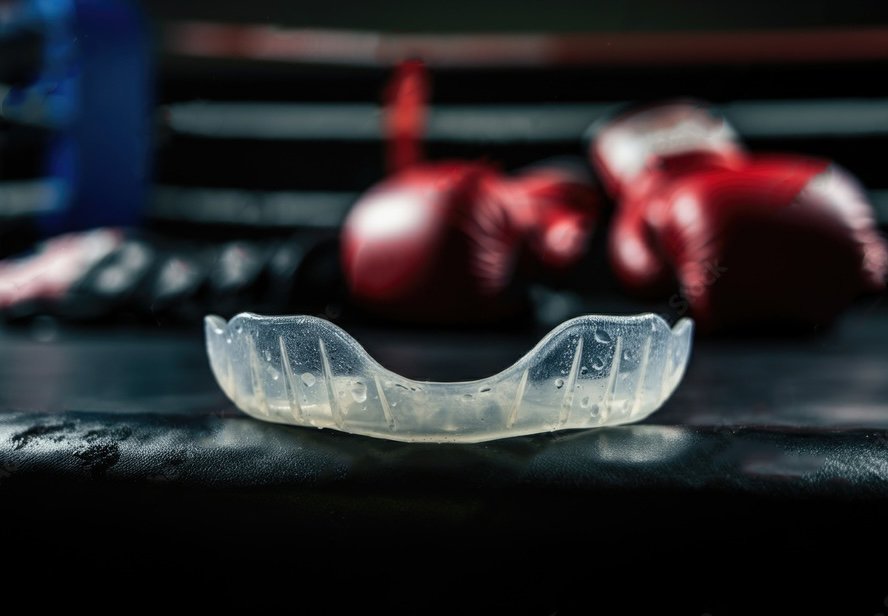How to Clean and Maintain Your Sports Mouthguard
A sports mouthguard is an essential piece of equipment that protects your teeth, gums, and jaw during physical activities. But like any piece of gear, it needs proper care to stay effective and hygienic. If you’re not cleaning your mouthguard correctly, it can quickly become a breeding ground for bacteria, leading to bad smells, oral infections, and even a shortened lifespan for your mouthguard.
In this guide, we’ll show you exactly how to clean and maintain your sports mouthguard so it stays fresh, safe, and ready for every game.
Why Cleaning Your Sports Mouthguard Matters
Keeping your mouthguard clean isn’t just about making it look nice—it’s crucial for your health. Here’s why regular cleaning matters:
Prevents bacteria buildup: Mouthguards can trap bacteria, leading to infections, bad breath, and even serious illnesses.
Extends the life of your mouthguard: Regular cleaning helps prevent material breakdown, cracking, and warping.
Maintains a fresh taste and smell: Nobody wants to pop a foul-smelling mouthguard into their mouth before a game!
A clean mouthguard helps you play with confidence, knowing your smile is protected.
How to Clean Your Sports Mouthguard Daily
Cleaning your mouthguard daily is the simplest way to maintain hygiene and performance. Here’s how:
Step 1: Rinse Immediately After Use
After each game or training session, rinse your mouthguard under cool, running water to remove saliva, debris, and bacteria.
Step 2: Brush Gently
Use a soft toothbrush (different from your regular toothbrush) and mild, non-abrasive soap or mouthguard cleaner. Avoid using toothpaste—it’s too harsh and can scratch the surface.
Brush the entire mouthguard, including crevices and grooves.
Rinse thoroughly with cool water afterwards.
Step 3: Dry Properly
Pat your mouthguard dry with a clean cloth or paper towel. Allow it to air-dry completely before storing it to prevent bacterial growth.
Deep Cleaning Your Sports Mouthguard Weekly
A deeper clean once a week gives your mouthguard extra protection against bacteria and odours. Here’s how to do it:
Option 1: Denture Cleaning Tablets
Dissolve a denture cleaning tablet in a cup of cool or lukewarm water.
Soak your mouthguard for about 10–15 minutes (or as recommended by the product).
Rinse thoroughly with water before using.
Option 2: Vinegar and Hydrogen Peroxide Soak
Soak your mouthguard in a cup of vinegar for 30 minutes.
Rinse, then soak it in hydrogen peroxide for another 30 minutes.
Rinse again thoroughly before drying.
Note: Always check with your mouthguard provider before using any soaking method to ensure it’s suitable for your mouthguard material.
How to Store Your Sports Mouthguard
Proper storage is just as important as cleaning when it comes to maintaining your mouthguard.
Use a ventilated case: Choose a container with air holes to prevent moisture buildup, which encourages bacteria.
Avoid leaving it in the sun or hot places: Heat can warp the material and ruin the fit.
Clean your storage case regularly: Bacteria can grow inside the case too, so wash it with soap and water at least once a week.
Good storage habits help keep your mouthguard in top condition between uses.
Common Mistakes to Avoid
Even with good intentions, it’s easy to accidentally damage your mouthguard. Here’s what to avoid:
Using hot water to clean: Hot water can warp the shape of your mouthguard. Always use cool or lukewarm water.
Chewing on your mouthguard: Chewing weakens the material, making it less effective at protecting your teeth.
Skipping daily cleaning: Bacteria build up quickly. A quick rinse and brush after each use go a long way.
Ignoring wear and tear: Cracks, tears, or thinning spots mean your mouthguard needs replacing.
How to Know When It’s Time to Replace Your Mouthguard
Even with perfect care, mouthguards don’t last forever. Here are signs it’s time for a new one:
Visible cracks, holes, or tears.
Warping or changes in shape.
Feeling loose or uncomfortable in your mouth.
Strong, persistent odours even after cleaning.
Changes in your bite or dental structure (especially for growing teens).
Regular check-ups with your dentist or mouthguard provider will also help spot early signs of wear and recommend a replacement when needed.
Quick Tips for Keeping Your Mouthguard in Top Shape
Rinse after every use.
Brush daily with mild soap.
Deep clean weekly with denture tablets or safe soaking solutions.
Dry completely before storing in a ventilated case.
Keep away from heat and direct sunlight.
Check for damage regularly and replace when needed.
A little daily care goes a long way in keeping your mouthguard fresh, comfortable, and protective.
Keep Your Mouthguard Clean for Peak Performance
A clean, well-maintained mouthguard not only protects your teeth but also helps you feel fresh, confident, and ready to perform at your best. Good hygiene habits can extend the life of your mouthguard and protect your overall oral health.
At Denture Haus, we create high-quality custom mouthguards designed for the perfect fit, maximum protection, and easy maintenance. Whether you need a new mouthguard or advice on caring for your current one, our team is here to help.
Ready to protect your smile and keep your mouthguard in top condition? Contact Denture Haus today to book a consultation for your custom sports mouthguard needs!

